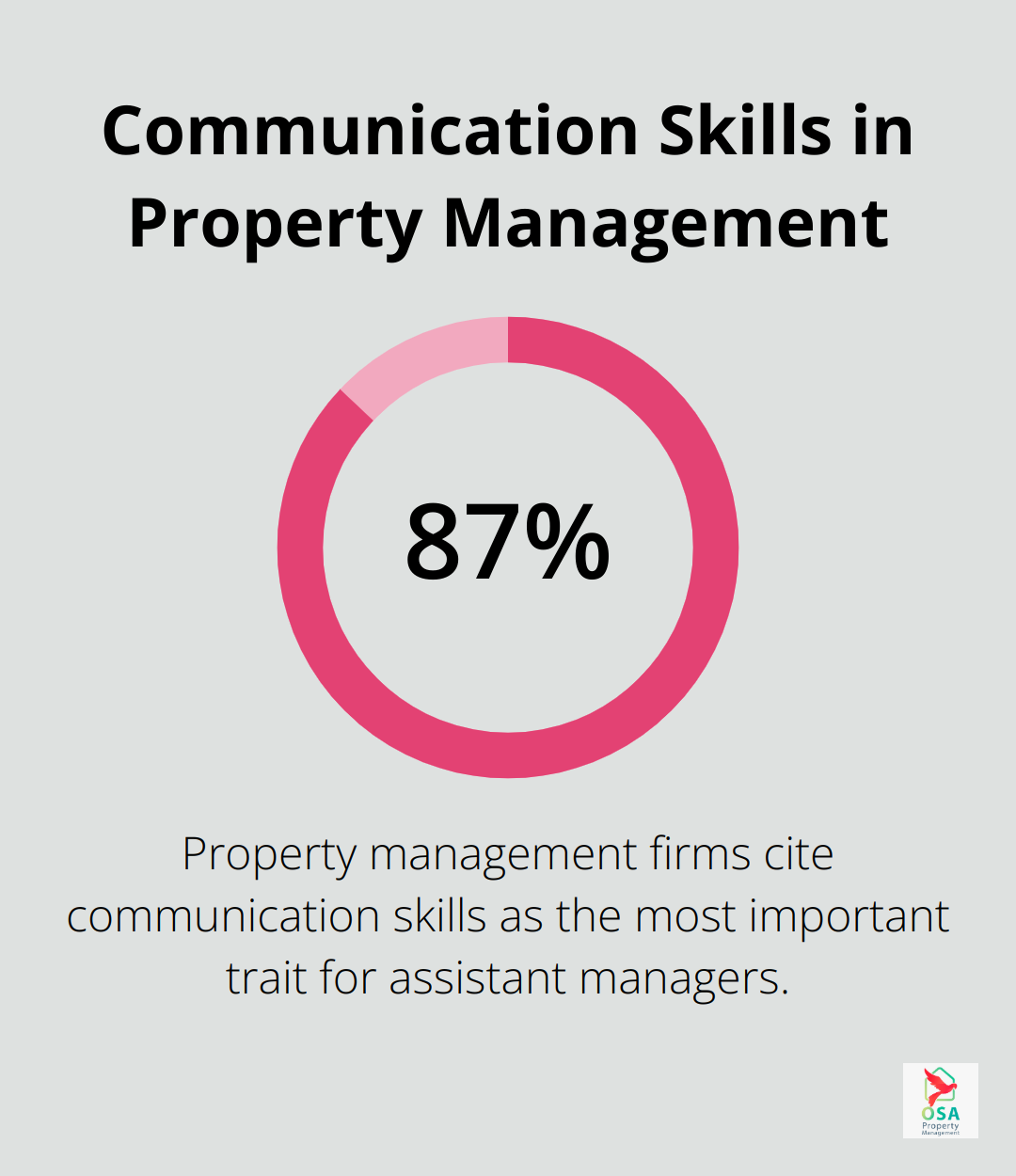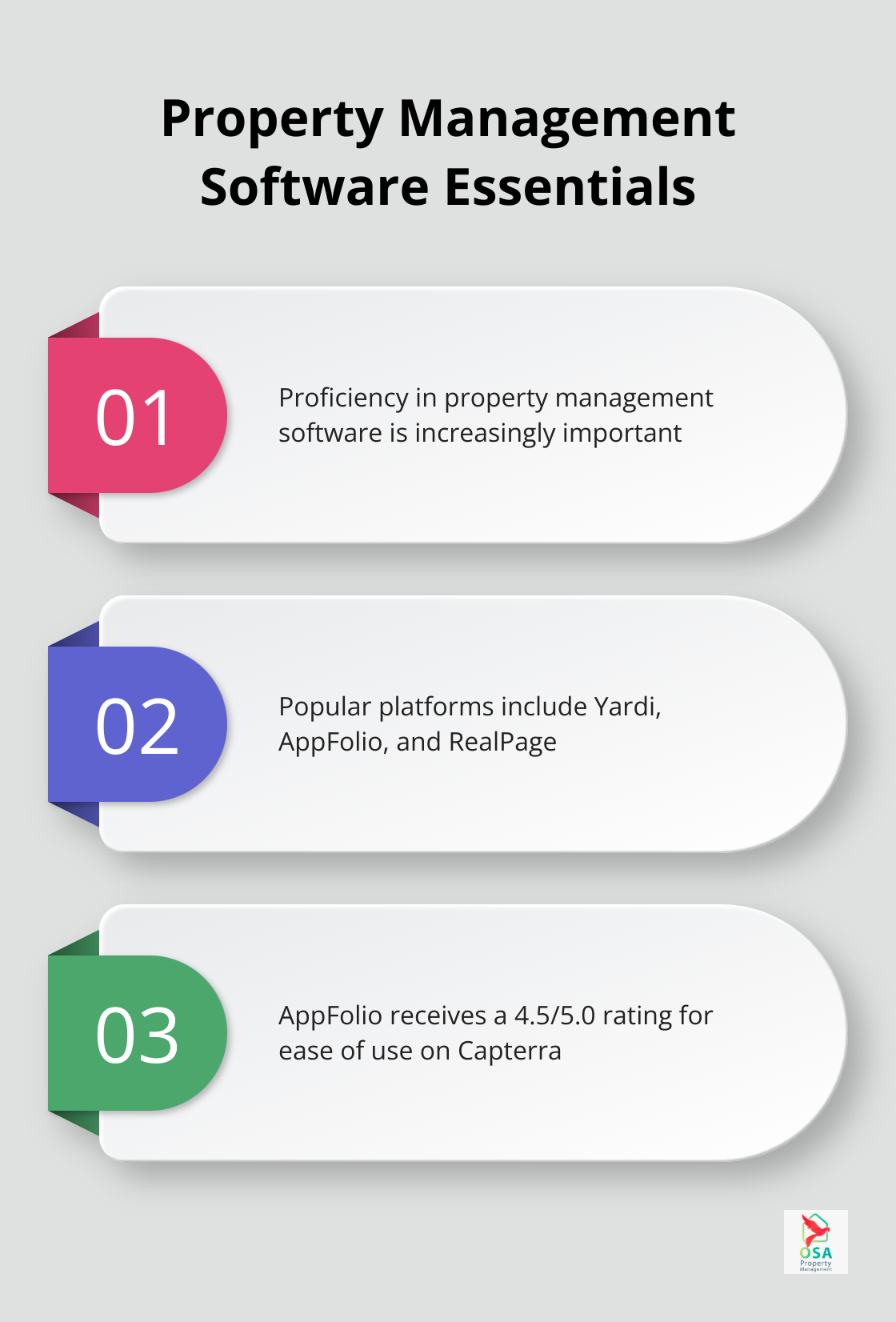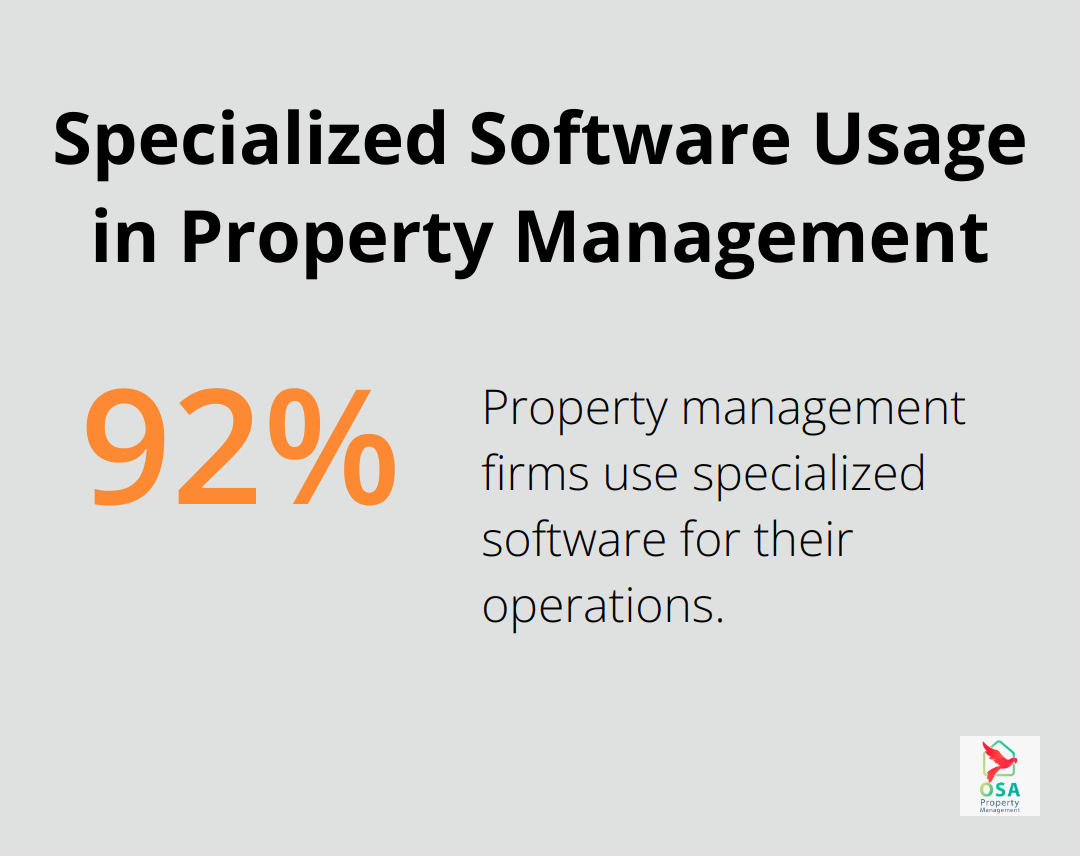At Osa Property Management, we know that landing assistant manager property management jobs can be challenging. The role requires a unique blend of skills, experience, and industry knowledge.
In this post, we’ll guide you through the essential steps to secure these coveted positions. From building the right skill set to crafting a standout application, we’ve got you covered.
What Skills Do Assistant Property Managers Need?
At Osa Property Management, we’ve observed that successful assistant property managers possess a unique blend of skills. These professionals form the backbone of efficient property operations, bridging the gap between tenants, owners, and management.
Property Management Fundamentals
Assistant property managers must have a solid grasp of property management principles. This includes understanding lease agreements, rent collection processes, and maintenance scheduling. Familiarity with financial concepts like budgeting and expense tracking is also essential. Many employers prefer candidates with a bachelor’s degree in business or real estate, though relevant experience can sometimes substitute formal education.
Communication Excellence
Strong communication skills are non-negotiable in this role. Assistant property managers interact daily with tenants, contractors, and property owners. They must articulate complex issues clearly, handle complaints diplomatically, and negotiate effectively. A 2024 survey by the National Apartment Association revealed that 87% of property management firms cited communication skills as the most important trait for assistant managers.

Technology Proficiency
Proficiency in property management software is increasingly important. Popular platforms like Yardi, AppFolio, and RealPage streamline tasks from rent collection to maintenance requests. AppFolio, for instance, receives a rating of 4.5 out of 5.0 for ease of use on Capterra, with reviewers sharing that the software is easy to use.

Legal Knowledge
Understanding of local real estate laws and regulations is vital. Assistant property managers must ensure compliance with fair housing laws, understand eviction procedures, and stay updated on building codes. As 2025 unfolds, landlords and property managers need to focus on key areas of compliance and legal regulations to stay current with the evolving legal landscape.
Problem-Solving Abilities
Assistant property managers often face unexpected challenges, from maintenance emergencies to tenant disputes. The ability to think on one’s feet and find creative solutions is invaluable. Employers look for candidates who can demonstrate their problem-solving skills through past experiences or hypothetical scenarios.
As we move forward, we’ll explore how aspiring assistant property managers can build the necessary experience to complement these essential skills and stand out in the competitive job market.
How to Gain Valuable Property Management Experience
Start at the Ground Level
The most effective way to understand property management is to start from the bottom. Entry-level positions such as leasing agents or property administrators provide invaluable insights into the day-to-day operations of managing properties. These roles often involve direct interaction with tenants, handling inquiries, and assisting with lease agreements.
Leverage Internship Opportunities
Internships offer a unique opportunity to gain hands-on experience while still in school or early in your career. Many property management firms offer internship programs that provide exposure to various aspects of the industry. These programs often include rotations through different departments, giving interns a comprehensive understanding of property operations, maintenance, and tenant relations.
Pursue Relevant Certifications
Experience is important, but certifications can significantly boost your credibility and knowledge base. The Certified Apartment Manager (CAM) certification is highly regarded in the industry. This program covers essential topics such as financial management, legal responsibilities, and human resources.
Continuous Education and Networking
The property management landscape constantly evolves, making continuous education essential. Attend industry conferences, webinars, and workshops to stay updated on the latest trends and regulations. The National Multifamily Housing Council hosts an annual conference that attracts industry professionals, providing excellent networking opportunities. Additionally, joining local real estate associations can help you build connections and learn from experienced professionals in your area.
Now that you’ve built a strong foundation in property management, it’s time to focus on crafting a compelling resume and cover letter that will catch the eye of potential employers. For those interested in expanding their horizons, property management careers in Costa Rica offer exciting opportunities and growth potential in a vibrant market.
How to Create a Standout Resume and Cover Letter
At Osa Property Management, we review numerous applications for assistant property manager positions. We know what makes a resume and cover letter stand out. Here’s how to craft application materials that will catch the eye of hiring managers in the property management industry.
Tailor Your Resume to the Job
Your resume should target the needs of the position you apply for. Review the job description and identify key skills and qualifications the employer seeks. Then, highlight these specific attributes in your resume.
For example, if the job posting emphasizes experience with property management software, feature your proficiency with platforms like Yardi or AppFolio prominently. A 2024 survey by the National Apartment Association found that 92% of property management firms use specialized software, making this skill highly valuable.

Quantify Your Achievements
Numbers speak louder than words when showcasing your accomplishments. Instead of simply stating that you improved occupancy rates, provide specific figures. For instance:
“Increased property occupancy from 85% to 98% within six months through targeted marketing strategies and improved tenant retention programs.”
Highlight Problem-Solving Skills
Property management often involves dealing with unexpected issues. Demonstrate your ability to handle challenges by including specific examples of problems you’ve solved in previous roles. For instance:
“Implemented a new maintenance request system that reduced response times by 40% and increased tenant satisfaction scores by 25%.”
Problem-solving skills in property management include handling deposits, invoicing clients, managing file systems, coordinating lease agreements, negotiating contracts, handling accounts payable, and performing data entry.
Craft a Compelling Cover Letter
Your cover letter tells your story and explains why you’re the ideal candidate for the position. Start with a strong opening that grabs attention and clearly states your interest in the role. Then, use the body of the letter to expand on your most relevant experiences and skills.
Address any specific requirements mentioned in the job posting. If the employer looks for someone with experience in luxury properties, highlight your background in this area.
End your cover letter with a call to action, expressing your enthusiasm for the opportunity and your desire to discuss the position further in an interview.
Showcase Your Industry Knowledge
Demonstrate your understanding of the property management industry in your application materials. Include relevant industry trends, regulations, or best practices (when appropriate). This shows potential employers that you stay informed and engaged with the field.
Your application materials often create your first impression on a potential employer. Take the time to craft them carefully, ensuring they accurately represent your skills and experience while also demonstrating your understanding of and passion for the property management industry.
Final Thoughts
Landing assistant manager property management jobs requires a combination of skills, experience, and strategic planning. You must develop a strong foundation in property management principles, hone your communication abilities, and stay up-to-date with industry technology and regulations. Gaining relevant experience through entry-level positions, internships, and learning from seasoned professionals will build your skill set and provide valuable insights.
Crafting a compelling resume and cover letter allows you to showcase your qualifications and stand out from other applicants. You should tailor your application materials to each specific job, highlight your achievements with concrete examples, and demonstrate your problem-solving abilities. The property management industry constantly evolves, so continuous learning and professional development are essential to enhance your expertise and marketability.
At Osa Property Management, we understand the challenges and rewards of a career in property management. We encourage you to embrace each opportunity, expand your knowledge, and approach challenges as chances to prove your capabilities (especially in assistant manager roles). The property management field offers exciting prospects for those who put in the effort to build a rewarding career in this dynamic industry.

